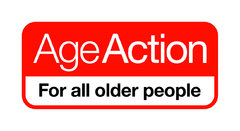Posted on March 03, 2015

Articles 11 and 12 of the International Covenant on Economic, Social and Cultural Rights recognise the rights to an adequate standard of living and to health respectively. At Age Action, we hear on a daily basis that for many older people, austerity has meant these rights are moving further and further out of reach.
Firstly, let’s look at Article 11. This focuses not only on an adequate standard of living, but also on the continuous improvement of living conditions. The last increase to the State Pension was in January 2009. While the Government has maintained this rate in the intervening time, the erosion of secondary income supports, price inflation and the introduction of new taxes and charges on property and water have decimated the value of the State Pension for older people. Our booklet on Growing Older in Ireland, published as part of the United Nation International Day for the Eradication of Poverty last year highlighted that the abolition of the telephone allowance and cuts in the electricity and fuel allowance have meant that between January 2009 and January 2014, the pension’s value fell by €9.87 per week. For those who must pay the property tax, an annual sum of €250 can mean another €4.80 is taken from an older person’s small fixed income each week.
The retention of the weekly rate of the state pension has led many political and media commentators to comment that older people have remained untouched by austerity. However, we increasingly hear that older people are making choices between heating their homes and purchasing food or medicine. For some this means dipping into savings held for a rainy day or even for their funeral. The impact on older people is not just a depletion of savings but has consequences for their mental health and wellbeing as well. Older people we speak with talk about the fear of getting sick, the terror of what will ‘come through the letterbox next’ and that the imposition of cutbacks and new charges is effectively ‘euthanasia by stealth’.
Secondly, Article 12 seeks to ensure that everyone has the right to enjoy the highest attainable standard of physical and mental health. As we grow older, access to adequate health care services is increasingly important in realizing this right. But the recession has made this more and more difficult for many older people. Successive budgets have focused on achieving savings through the reduction of funding to services at primary care level. Cuts that have had a particular impact for older people have included:
- Increasing the threshold for the Over-70’s medical card.
- Reducing the number of health and social care professionals providing services to older people.
- Increasing prescription charges for medical card holders.
- No increase in home help hours or home care packages to meet the increase in the older population, which in real terms represents a cut in provision.
- Reducing the number of long term care beds funded under Fair Deal.
- Additional fees introduced for nursing home residents.
Aside from these cuts there are also many hidden health situations experienced by older people that are not captured in published statistics. For instance, we do not know how many older people must now find the money to pay for a taxi fare to the hospital due to cuts in free transport for medical appointments.
It is evident from Age Action’s work with and on behalf of older people that the Government is not meeting its obligations in terms of these two Articles. We call on the Government to live up to its duties under ICESCR in order to ensure that Ireland is the best country in which to grow old.
- Naomi Feely is Senior Policy Officer at Age Action, a charity that promotes positive ageing and better policies and services for older people. Working with and on behalf of older people, we aim to make Ireland the best place in the world in which to grow older.